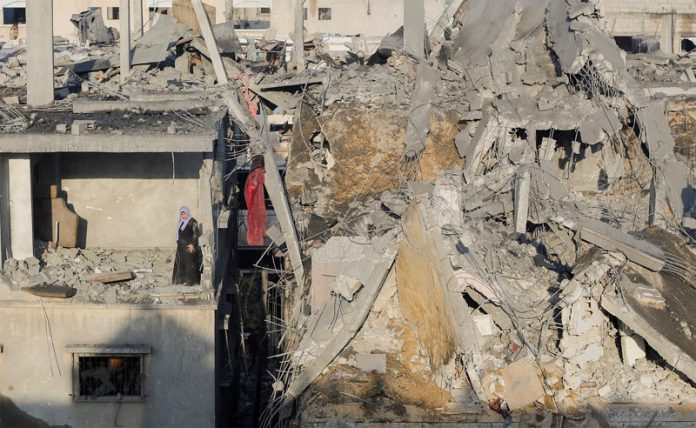DEIR AL-BALAH (Gaza Strip), Dec 6: Israeli forces battled Hamas militants across Gaza on Wednesday after expanding their ground offensive to its second-largest city, further shrinking the area where Palestinians can seek safety and halting the distribution of vital aid across most of the territory.
The assault on the south threatens further mass displacement within the besieged coastal enclave, where the U.N. Says some 1.87 million people — over 80 per cent of the population — have already fled their homes.
Much of the north, including large parts of Gaza City, has been completely destroyed, and Palestinians fear the rest of Gaza could suffer a similar fate as Israel tries to dismantle Hamas, which has deep roots in the territory it has ruled for 16 years.
Israel says it can no longer accept a Hamas military presence in Gaza after the October 7 attack that triggered the war, and Prime Minister Benjamin Netanyahu has said Israel will maintain open-ended security control over the territory, something opposed by the United States and much of the international community.
The Israeli military said Tuesday that its troops were “in the heart” of the southern city of Khan Younis after what it described as “the most intense day” of fighting since the start of the ground operation five weeks ago, with heavy battles in the north as well.
Thousands of people have fled to the Rafah since Israel resumed its offensive after the cease-fire, including many from the north who have been displaced multiple times.
Hamza Abu Mustafa, a teacher who lives near a school-turned-shelter and is hosting three families himself, said “the situation is extremely dire.”
“You find displaced people in the streets, in schools, in mosques, in hospitals … everywhere.”
A Palestinian woman who identified herself as Umm Ahmed said the harsh conditions and limited access to toilets are especially difficult for women who are pregnant or menstruating. “For women and girls, the suffering is double,” she said. “It’s more humiliation.”
Palestinian women have recently taken to social media to request menstrual pads, which are increasingly hard to find.
“I apologize for raising such a matter,” one user wrote on X, adding that there were 15 girls staying in her house. “What are we supposed to do?”
More than 100 hostages were released during last week’s cease-fire, along with 240 Palestinians imprisoned by Israel.
But an estimated 138 hostages remain in Gaza, mostly soldiers and civilian men, and accounts of widespread rape and other atrocities committed during the rampage have deepened Israel’s outrage and further galvanized support for the war.
It was not clear how many people heeded the evacuation orders, as many Palestinians say they don’t feel safe anywhere in Gaza and fear that if they leave their homes they will not be allowed to return. (AP)


